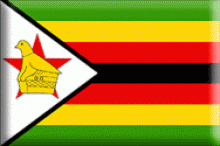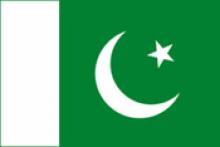2011 ICC Cricket World Cup - Sri Lanka vs. Pakistan
Barring the Netherlands/England game, the 2011 World Cup offered precious little by way of genuinely exciting matches until Sri Lanka faced Pakistan on Friday. Even the games between established sides, like South Africa vs. the West Indies and Australia vs. New Zealand, telegraphed their one-sided nature very early on. But the Sri Lanka/Pakistan gave us some of the best of what 50-over cricket has to offer, as the match went down to the final over and the final wicket.
Sri Lanka is always a good place to bat first, and that's what Shahid Afridi did when he won the toss. Ahmed Shezad and Mohammed Hafeez avoided the soporific start they made in the Kenya game and cashed in on some easy bowling from Nuwan Kulasekera and Tissera Perera. Shezad fell chasing a wide one from Perera for 13 (28/1), but Hafeez and Kamran Akmal kept the momentum going with boundaries. At 76/1 in just the 13th over, Muttiah Muralitharan was brought on, and Hafeez was comically run out off his first over for 32 (requiring a combination of Mahela Jayawardene, Kumar Sangakkara, Rangana Herath and Murali to effect the dismissal). Kamran Akmal threw his wicket away with an unnecessary attempted swipe off Herath for 39 (105/3), but Younis Khan and Misbah-ul-Haq worked the singles and the gaps to ensure there would be no collapse from Pakistan. The two put on 108 together, Younis eventually falling for 72 off 76 (with just four boundaries). Shahid Afridi biffed 16 off 12, but the bigger story was Misbah finishing the innings on 83 not out, taking Pakistan to a very competitive 277/7.
Upul Tharanga and Tillekeratne Dilshan started well for Sri Lanka, but both were out after having made good starts (Tharanga for 33 and Dilshan for 41). The home team slipped from 76/0 to 88/2, then found themselves in big trouble as Shoaib Akhtar bowled Mahela Jayawardene, and Thilan Samaraweera was stumped off Shahid Afridi in quick succession. At 96/4, Pakistan were back in the game. Kumar Sangakkara survived a couple of missed stumpings to make 49, but fell trying to up the pace as Chamara Silva failed to get going. Silva eventually made 57, but when he and Tissara Perera fell in consecutive deliveries, the game was over for Sri Lanka. Nuwan Kulasekera threatened a rearguard assault with 24 off 14 balls, but his wicket was the final nail in Sri Lanka's coffin. They finished 11 runs short, at 266/9, with Shahid Afridi claiming 4 wickets in 10 tight overs.
The result might have surprised a lot of people, but this is Pakistan's 7th victory over Sri Lanka in World Cup games (despite the two not having played since the 1992 tournament). Sri Lanka might have missed Lasith Maligna's bowling services, but they were helped by some shoddy Pakistan fielding - Kamran Akmal's reputation as the worst wicket-keeper in world cricket was not helped by his glovework today (even though he stumped two batsmen). The dismissals of Mahela Jayawardene and Thilan Samaraweera turned the game around for Pakistan and put too much effort on Sri Lanka's unsteady middle order. Batting second in Sri Lanka has never been easy, but Pakistan have only themselves to blame for letting Sri Lanka get so close. The middle-over work of Younis Khan and Misbah-ul-Huq was a lesson in how to use the middle overs, and Shahid Afridi now has nine wickets from two games. Pakistan reminded the world that they're still a powerful team in cricket, and Sri Lanka are now under pressure to ensure that they make no more mistakes.
Pakistan: 277/7 (Misbah-ul-Haq 81*, Rangana Herath 10-0-46-2) in 50 overs
Sri Lanka 266/9 (Chamara Silva 57, Shahid Afridi 10-0-34-4) in 50 overs
Pakistan win by 11 runs
Man of the Match: Shahid Afridi










